
-
 Abhishek, Pandya fire India to 256-4 against Zimbabwe
Abhishek, Pandya fire India to 256-4 against Zimbabwe
-
Irish wing Lowe ruled out of rest of Six Nations

-
 Cuba vows to counter 'terrorist' attacks after clashing with US-based boat
Cuba vows to counter 'terrorist' attacks after clashing with US-based boat
-
Swastikas tagged at former Nazi transit camp near Paris

-
 Calls for heads to roll after feeble Sri Lanka T20 World Cup exit
Calls for heads to roll after feeble Sri Lanka T20 World Cup exit
-
Stocks mixed as investors digest Nvidia earnings

-
 Noosha Aubel: Scandal in Potsdam over severely disabled child
Noosha Aubel: Scandal in Potsdam over severely disabled child
-
Chaos as jihadist relatives left Syrian camp, witnesses say

-
 Mother of Greek train tragedy victim takes on politicians in bid for 'justice'
Mother of Greek train tragedy victim takes on politicians in bid for 'justice'
-
No proven link between Duterte speeches and drug deaths, defence tells ICC
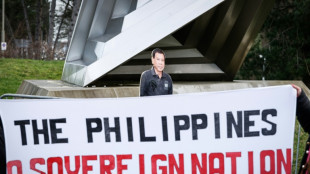
-
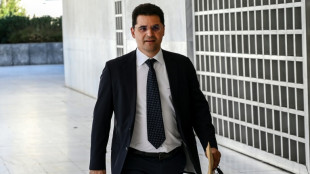 Athens court convicts four over Greece spyware saga
Athens court convicts four over Greece spyware saga
-
Iranian in possible France prisoner swap jailed for a year

-
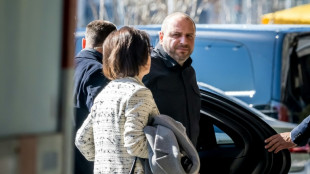 US, Ukraine hold talks in Geneva as Russia says 'no deadlines' to end war
US, Ukraine hold talks in Geneva as Russia says 'no deadlines' to end war
-
English giants dominate line-up for Champions League last-16 draw

-
 Iran, US hold talks in push to avert war
Iran, US hold talks in push to avert war
-
South Africa thrash West Indies in T20 World Cup statement win

-
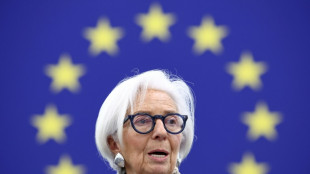 ECB books third straight annual loss
ECB books third straight annual loss
-
Injury forces Marquez to adapt for MotoGP opener

-
 Booming markets propel Hong Kong exchange's profits to record high
Booming markets propel Hong Kong exchange's profits to record high
-
West Indies recover from 83-7 to post to 176-8 against South Africa

-
 Filmmakers defend Berlin festival chief in Gaza row
Filmmakers defend Berlin festival chief in Gaza row
-
Hong Kong mogul Jimmy Lai wins appeal in fraud case

-
 Iranian in possible prisoner exchange faces 'terrorism' verdict in France
Iranian in possible prisoner exchange faces 'terrorism' verdict in France
-
'Street-smart' New Zealand can topple England to make T20 semis: coach

-
 Iran-US talks begin in push to avert war
Iran-US talks begin in push to avert war
-
Merz says Germany, China must overcome trade gaps 'together'

-
 Automaker Stellantis posts massive loss, pivots from EV
Automaker Stellantis posts massive loss, pivots from EV
-
US, Ukraine to meet in Geneva after overnight Russian strikes
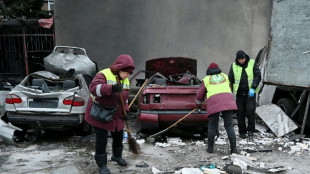
-
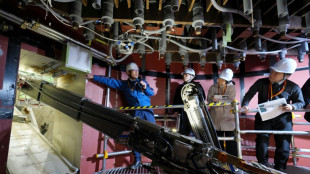 Snake-like robot unveiled for Fukushima debris removal
Snake-like robot unveiled for Fukushima debris removal
-
'Public lynching': Senegal cracks down on LGBTQ+ community
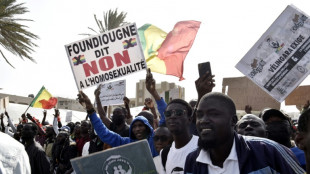
-
 Hong Kong sentences father of wanted activist to 8 months in jail
Hong Kong sentences father of wanted activist to 8 months in jail
-
The woman fighting to reclaim her face from Albania's 'AI minister'
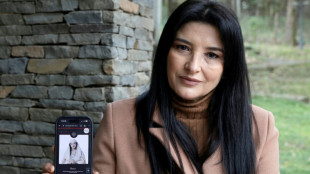
-
 Bulgaria ski station becomes refuge for digital nomads
Bulgaria ski station becomes refuge for digital nomads
-
Thai runner-up party seeks criminal case against election officials
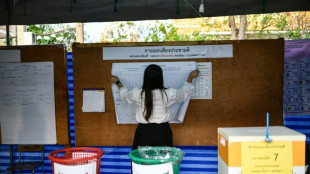
-
 North Korea's Kim shuns South but could 'get along' with US
North Korea's Kim shuns South but could 'get along' with US
-
Spurs win 10th straight, Pistons silence Thunder in battle of NBA's best

-
 Germany's Merz visits China AI hub hoping for business deals
Germany's Merz visits China AI hub hoping for business deals
-
Post-uprising polls won't shake Nepal's delicate India-China balance
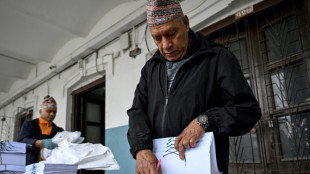
-
 S.Korea's Park Chan-wook to head Cannes festival jury
S.Korea's Park Chan-wook to head Cannes festival jury
-
Australian ex-PM says 'more important than ever' to ditch UK monarchy
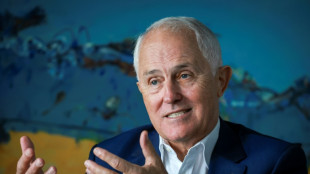
-
 Dressed for succession? Kim Jong Un, daughter fuel speculation with matching coats
Dressed for succession? Kim Jong Un, daughter fuel speculation with matching coats
-
US-Ukraine talks to open in Geneva after overnight Russian strikes

-
 Export ban sparks rush to process lithium in Zimbabwe
Export ban sparks rush to process lithium in Zimbabwe
-
Pakistani sculptor turns scrap into colossal metal artworks
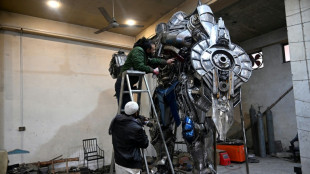
-
 Epstein files reveal links to cash, women, power in Africa
Epstein files reveal links to cash, women, power in Africa
-
Where are Southeast Asia's data centres?

-
 Where AI lives: Southeast Asia's data centre boom
Where AI lives: Southeast Asia's data centre boom
-
Seoul hits fresh record on mixed day for Asia markets

-
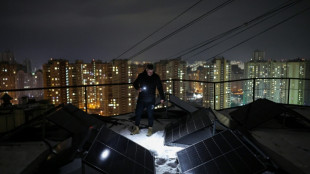 Kyiv residents pool together for solar panels and batteries amid Russian strikes
Kyiv residents pool together for solar panels and batteries amid Russian strikes
-
North Korea's Kim says could 'get along' with US but shuns South


Extreme weather misinformation 'putting lives at risk,' study warns
Major social media platforms are enabling and profiting from misinformation around extreme weather events, endangering lives and impeding emergency response efforts, a research group said Tuesday.
The report from the Center for Countering Digital Hate (CCDH) -- which analyzed 100 viral posts on each of three leading platforms during recent natural disasters including deadly Texas floods -- highlights how their algorithms amplify conspiracy theorists while sidelining life-saving information.
"The influence of high-profile conspiracy theorists during climate disasters is drowning out emergency response efforts," the report said, adding that the trend was "putting lives at risk."
Nearly all of the analyzed posts on Meta-owned Facebook and Instagram lacked fact-checks or Community Notes, a crowd-sourced verification system increasingly being adopted as an alternative to professional fact-checkers, the report said.
Elon Musk-owned X lacked fact-checks or Community Notes on 99 percent of the posts, while Google-owned YouTube "failed entirely," with zero fact-checks or Community Notes, CCDH said.
The report noted that well-known conspiracy theorist Alex Jones's false claims during the LA wildfires amassed more views on X throughout January than the combined reach of major emergency response agencies and news outlets, including the Los Angeles Times.
"The rapid spread of climate conspiracies online isn't accidental. It's baked into a business model that profits from outrage and division," said Imran Ahmed, CCDH's chief executive.
During the wildfires, online scammers placed social media advertisements impersonating federal emergency aid agencies to steal victims' personal information, Ahmed said, citing local officials.
"When distraught people can't distinguish real help from online deception, platforms become complicit in the suffering of innocent people," he said.
The tech platforms did not immediately respond to requests for comment.
- 'Dangerous' falsehoods -
Following natural disasters, misinformation tends to surge across social media -- fueled by accounts from across the political spectrum –- as many platforms scale back content moderation and reduce reliance on human fact-checkers, often accused by conservative advocates of a liberal bias.
During Hurricane Milton, which struck Florida last year, social media was flooded with baseless claims that the storm had been engineered by politicians using weather manipulation.
Similarly, the LA wildfires were falsely blamed on so-called "government lasers," a conspiracy theory amplified by viral posts.
Augustus Doricko, chief executive of cloud seeding company Rainmaker, said he received death threats online after conspiracy theorists blamed him for the devastating floods in Texas.
"I can confirm that we have received multiple threats since the flooding event," Doricko told AFP, highlighting the real-life consequences of such falsehoods.
The CCDH study found that the worst offenders spreading extreme weather misinformation were verified users with large followings, many of whom were attempting to monetize their posts.
Eighty eight percent of misleading extreme weather posts on X came from verified accounts, CCDH said. On YouTube, 73 percent of such posts originated from verified users, while on Meta, the figure was 64 percent.
"Climate disinformation costs lives," said Sam Bright of DeSmog, which reports on climate misinformation campaigns.
"As extreme weather events become more and more frequent, these falsehoods will only get more dangerous."
C.Garcia--AMWN


